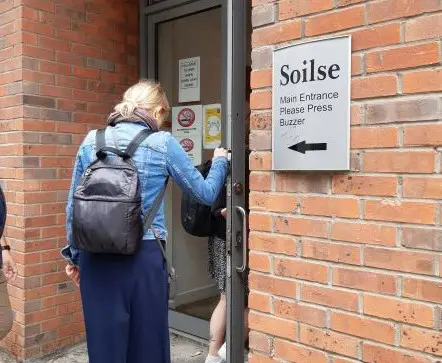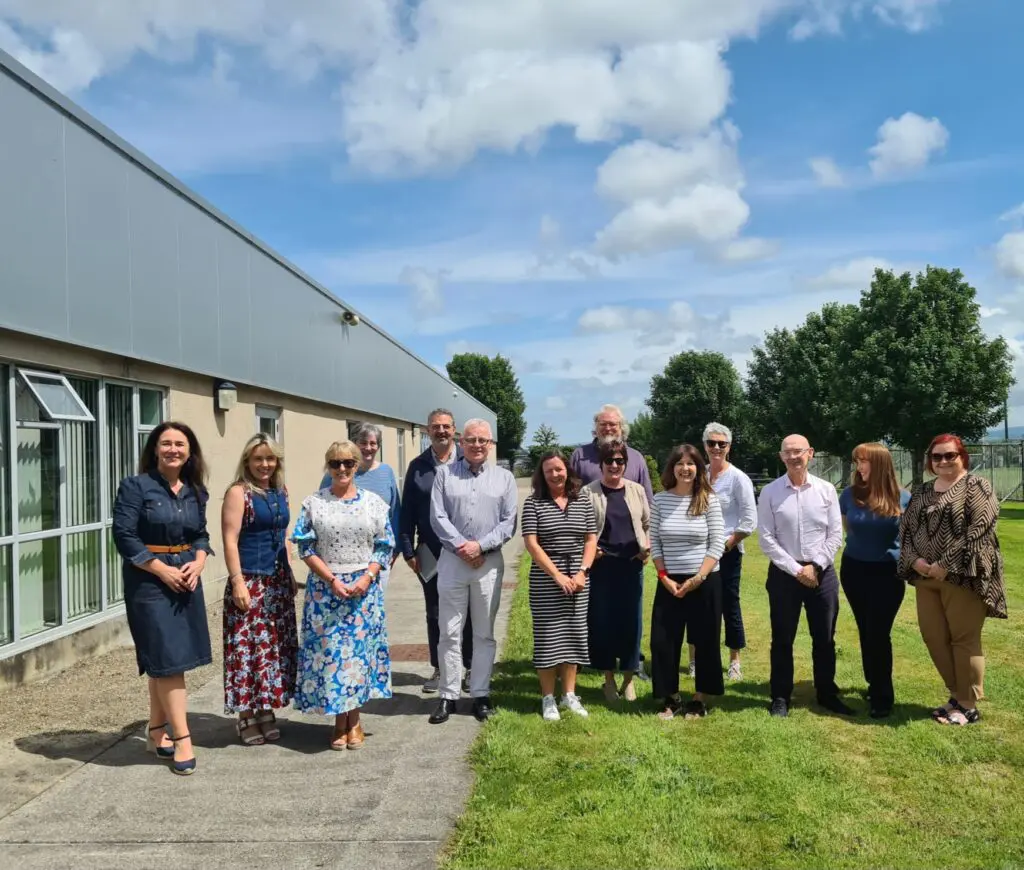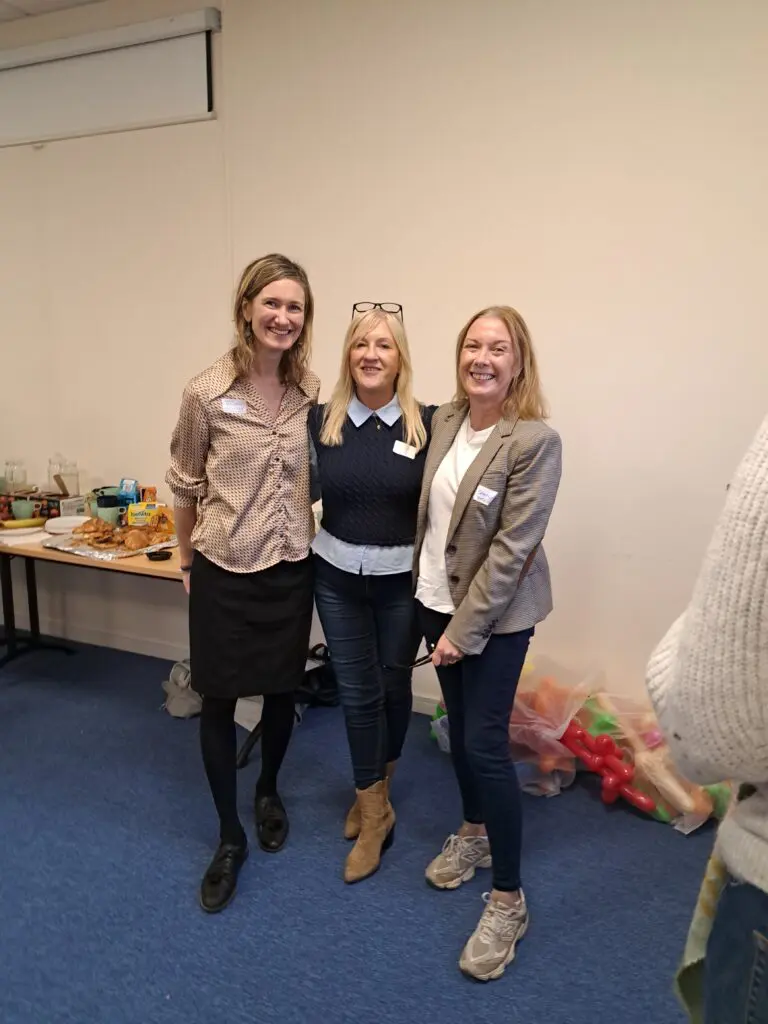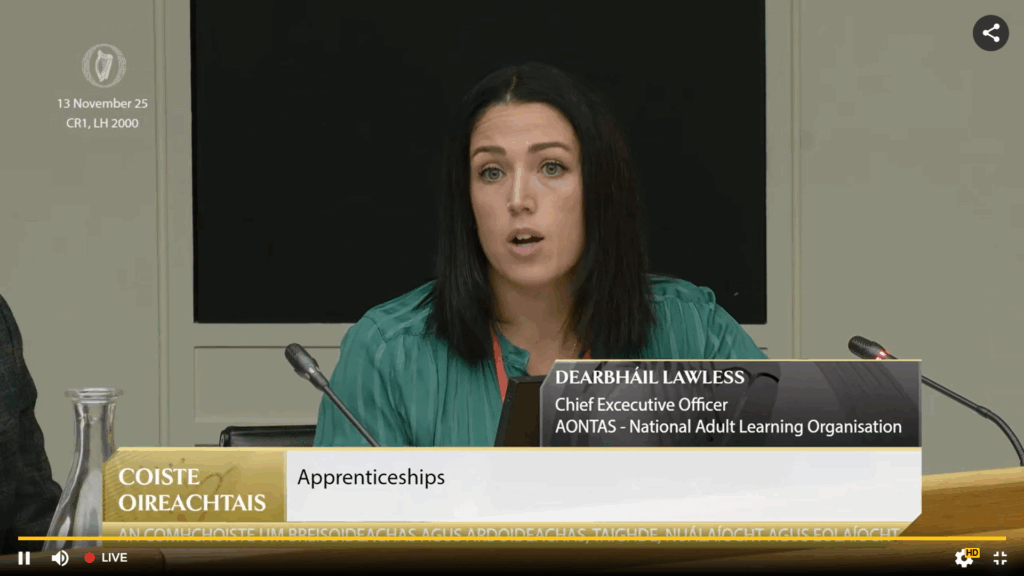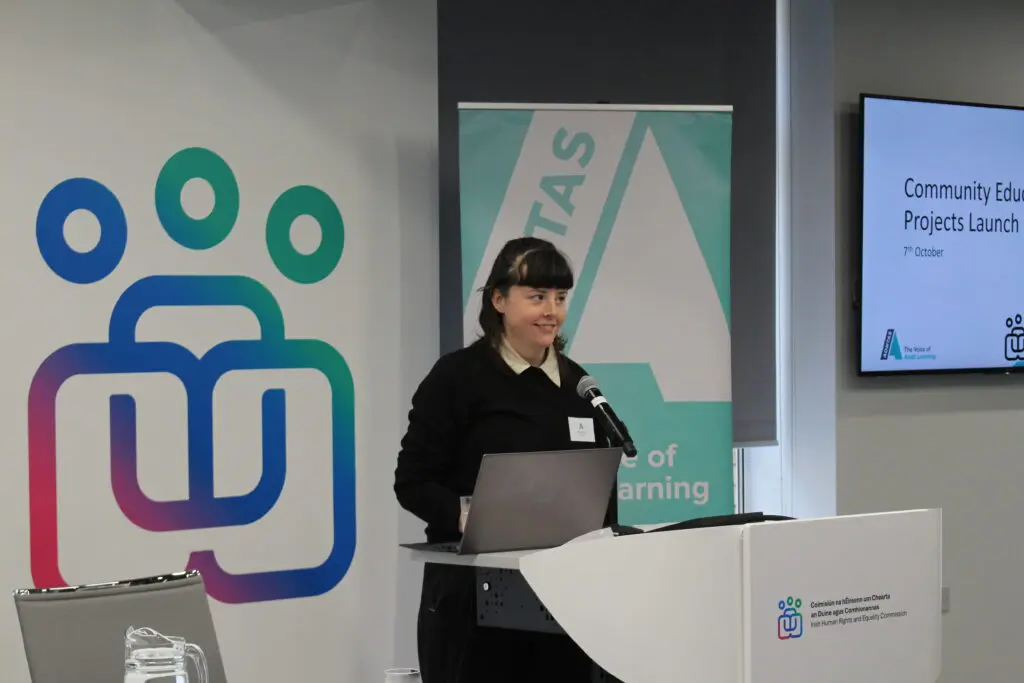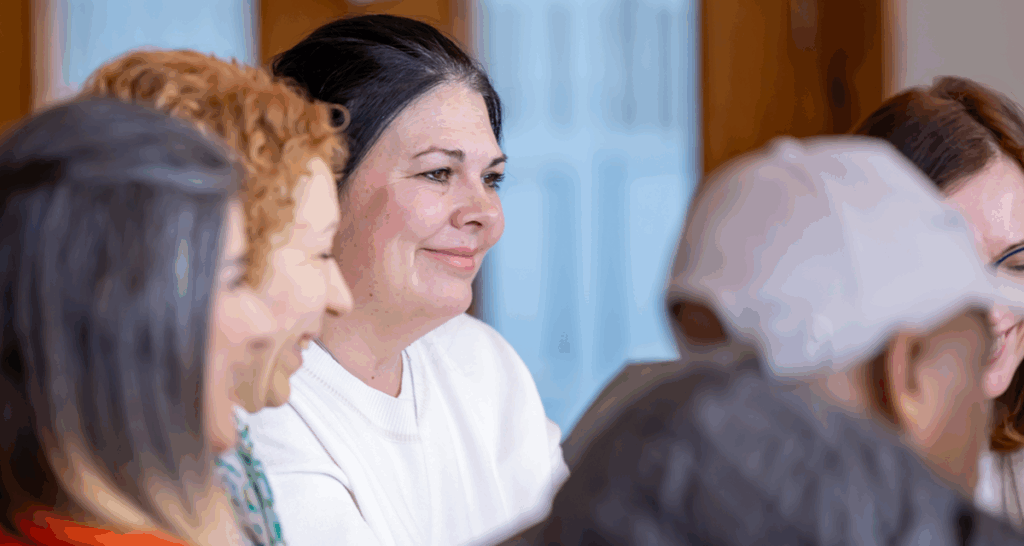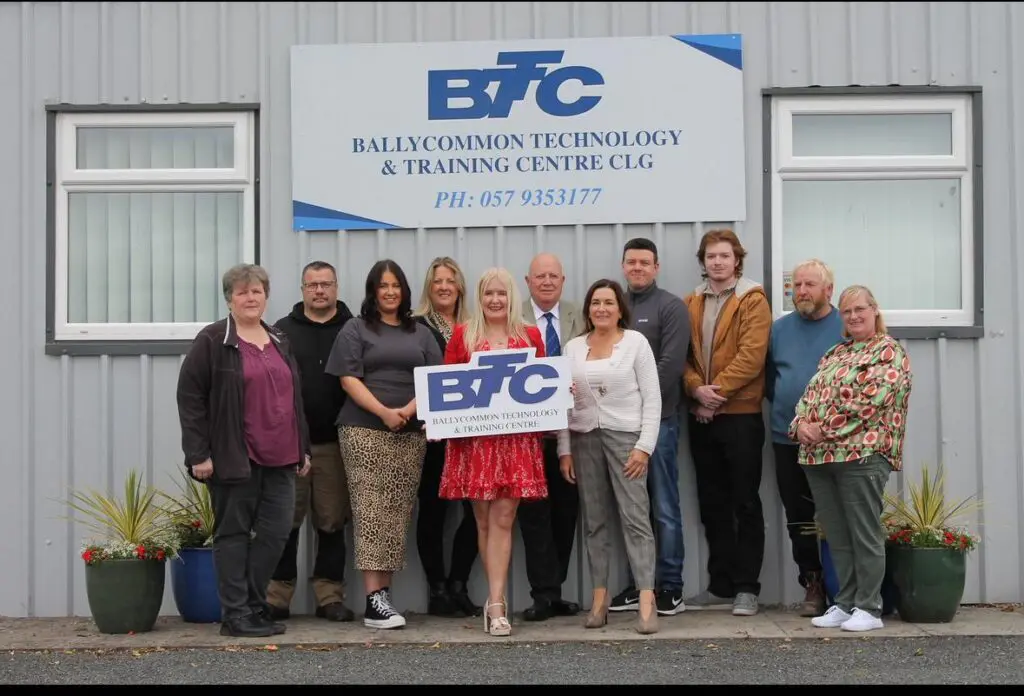AONTAS visited Soilse recently with our European partners from the RegALE project to learn about the work Soilse do. We were met by Dave O’Brien, a key worker at Soilse, who has been working in this addiction rehabilitation service for over 25 years. The RegALE Network is all about builing the skills and knowledge of colleagues working in the adult learning sector across Europe. Dave discussed the history of the service, the importance of community, and the model of care they use.
Education for recovery
Soilse was developed from an education perspective instead of a purely psychotherapeutic one, allowing for a much broader approach to addressing people’s needs. Tutors at Soilse may have counselling backgrounds but the team is not solely made up of counsellors. Dave explained how tutors in Soilse focus on people’s lived experience and encourage them to discuss what they’ve learned in a group.
“Addiction thrives on isolation. Recovery is achieved through connections, which can be found in Soilse” – Dave O’Brien
“There’s a great community here, everyone knows each other” – Soilse Learner
This narrative approach based on lived experience helps people to focus on the “chapters yet to come.” Dave described how the “learner’s story isn’t finished,” which is where the power of the narrative comes into play.
“We raise the bar of expectation, not lower it, because they can reach the bar” – Dave O’Brien
The ethos of the rehabilitation service looks to see their participants thrive after 5 years, and progress. Soilse promotes active citizenship and aims for their learners to become volunteers in their community. Learners are encouraged to participate in the recovery community, especially in the early years of their journey. And learners who have completed the programme are always welcomed back to the centre and can meet with current learners at Soilse.
“They can see us recover and we can tell them what worked for us. It gives them hope” – Soilse Learner
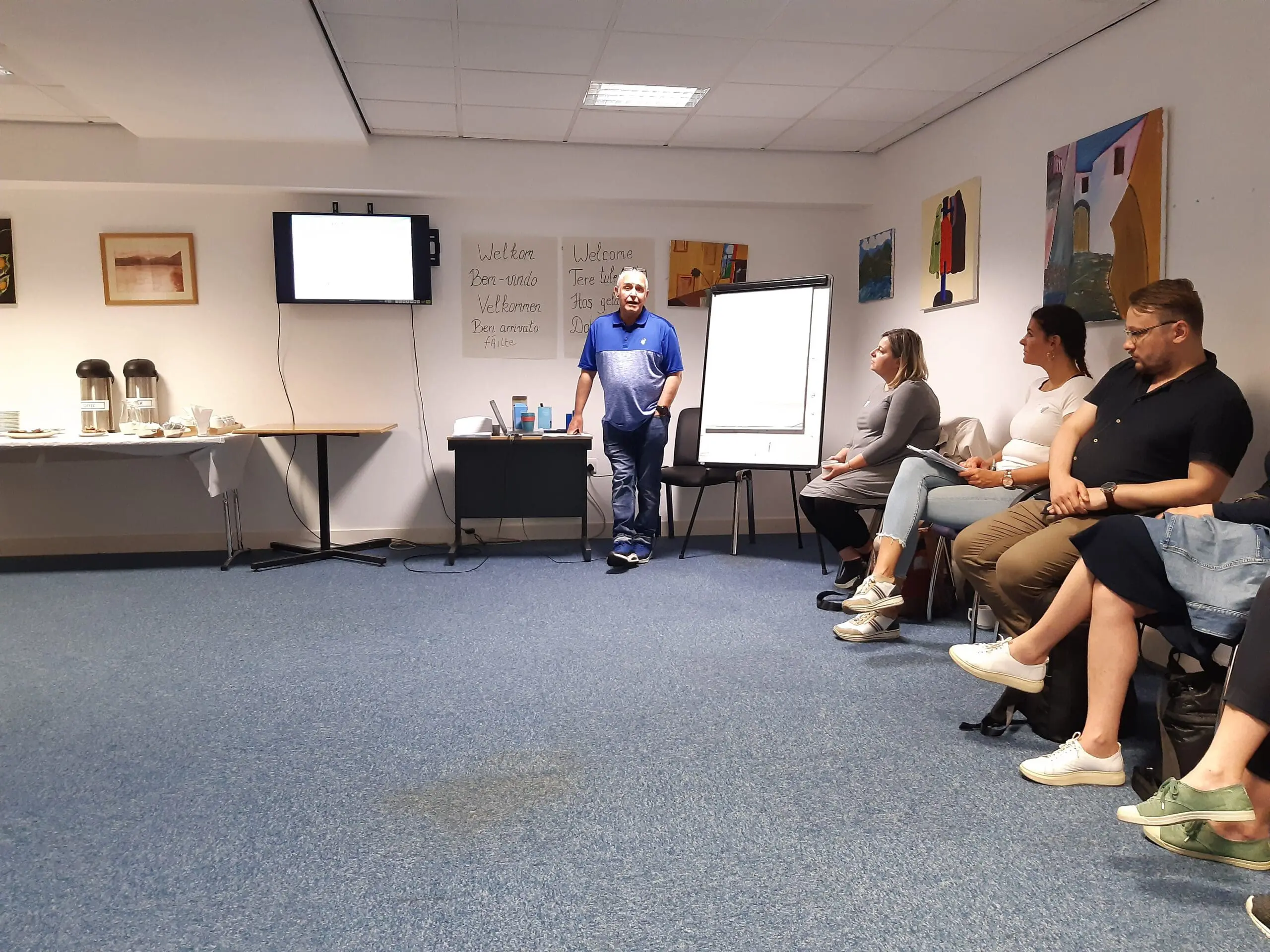 Continuing Care
Continuing Care
Soilse has two centres, one for helping adults prepare for detox and treatment, and another centre for supporting adults through the early stages of their recovery. According to Dave, they don’t want a “revolving door” system, where individuals are consistently relapsing in the programme.
They avoid this through holistic planning, with individual care planning, literacy support, meeting with dedicated career guidance counsellors, and linking with education support officers who encourage people to progress.
Community education courses and providers have the unique ability to shape learning around learners’ needs and provide wraparound or post-treatment supports that might relate to a person’s family, education, access to transport, career path, medications and any other areas that may affect recovery.
A significant proportion of participants at Soilse are early school leavers who have low literacy levels. Within this group, many people have dyslexia, and many have never been diagnosed.
“Your confidence is down and you feel like you’re not good enough, but the career guidance counsellors help you feel confident in achieving your goals” – Soilse Learner
According to Dave, the strength of Soilse’s programme derives from not trying to take on the whole recovery process in one centre but referring out to other centres for different parts of the recovery process, such as Dublin Adult Learning Centre (DALC), the 12-step recovery programme, the Recovery Academy of Ireland, or external counselling supports. This helps to increase “recovery capital”, the social, cultural, creative and environmental factors that help people flourish.
“This [programme] provided stability and routine that helped me get into education” – Soilse Learner
The group setting works through a “Circles of Belonging” model, built on a foundation of respect and consideration for one another. There are different “circles” in this model, including creating a new circle of friends, letting go of relationships that negatively impact on their recovery, and acknowledging how the decisions we make affects future generations.
Dave also shared how Soilse raises the bar of expectation for their learners, rather than lowering it, to help them succeed in the programme, remain drug-free, and believe that they can achieve their goals. The confidence in their learners and the “Circles of Belonging” helps to facilitate both individual and social transformation for learners at Soilse, and their communities.
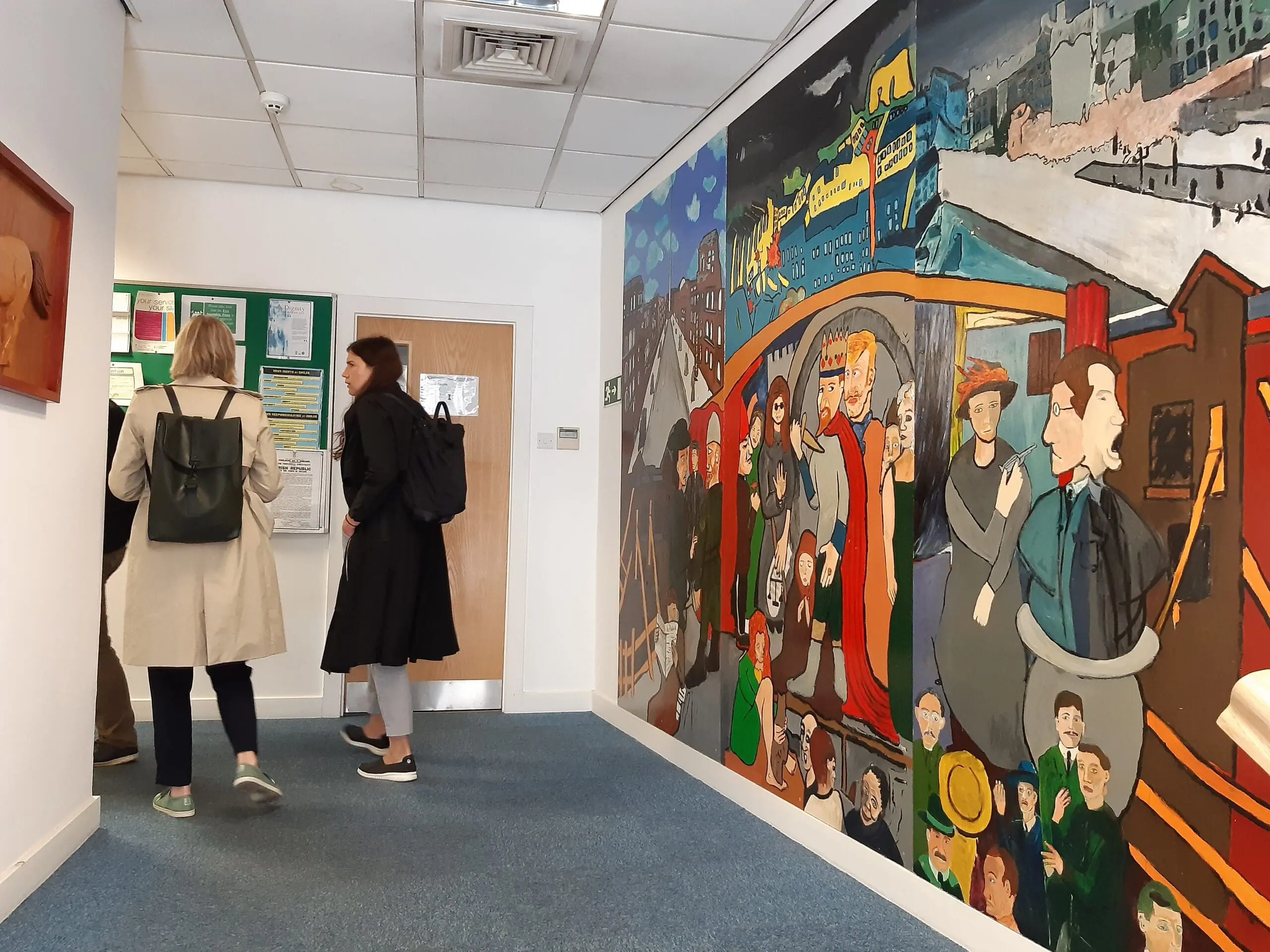 Advocating for learners’ needs
Advocating for learners’ needs
Like other community education centres, Soilse often finds participants through word of mouth. According to Dave, individuals are the agents of change that encourage others to engage with Soilse.
Over his long career, Dave has observed how the profile of drug users, and the drugs themselves, have changed since the centre opened.
“There is a lot of discrimination experienced by recovered users who are trying to progress through their lives” – Soilse Learner
Dave says that addiction is an individual and a societal issue. The advocacy work done by Soilse examines socioeconomic divides, and why more socioeconomically disadvantaged communities are affected by substance misuse in different ways to more affluent communities. Learners and facilitators advocate for a health response, where active users can get help in hospitals across Ireland without facing a criminal charge.
Services like Soilse help provide learning opportunities to marginalised groups in our society. Individuals who have an addiction should be given access to the same opportunities as anyone else and Soilse helps support this by looking at the whole person rather than just their addiction. They support positive physical and emotional well-being so that their participants can continue to learn. They enable people to recover from substance misuse, build positive relationships, and provide opportunities for growth through education, which is essential for creating a more inclusive society.
Learn more about Soilse by clicking here for the HSE website.
Click here for more on the RegALE Network.
For more information, contact Ecem Akarca, EU Projects Officer at: eakarca@aontas.com
